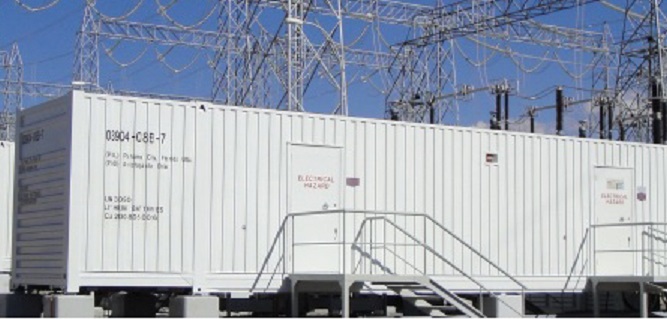
Swindon Borough Council has approved planning for a 50MW battery project submitted by its sustainable energy company Public Power Solutions (PPS), which will now seek a developer to build a business case from the front of the meter battery.
Plans were submitted for the scheme, at the former Mannington Depot owned by the council, in November when a PPS spokesperson told SPP the purpose of the battery would depend on “who ends up purchasing the scheme and how they own and operate it”.
Having successfully achieved planning consent for the former municipal depot, which has a grid connection via the nearby substation at Toothill, PPS is now in discussions with developers seeking large scale opportunities to take on the funding and construction of the project.
Steve Cains, head of power solutions at PPS, said: “The project has a great location next to a sub-station, meaning the grid connection cost is very competitive – so this is a good opportunity for a developer looking for front of the meter battery storage opportunities that will enable them to generate an income in a variety of different ways.”
Over the 30-year lifespan of the project, Swindon Borough Council will gain from a long-term land rental income.
Cabinet member for sustainability Cllr Toby Elliott said: “The fact this will be one of the largest battery storage schemes in the UK speaks volumes for our ambition in Swindon. It also shows our willingness to look for innovative ways in which to utilise our assets, generating an income for the council to protect vital services.”
“Local authorities are in a unique position to benefit from the growing demand for electricity storage, with diverse property portfolios and high energy consumption. We’re making it work at home here in Swindon but this project could be replicated in many other parts of the country, helping generate an income for the cash-strapped public sector,” Cains added.
Front of the meter uncertainties
The project has three years to begin construction, during which time it will have to overcome several investment risks associated with large scale front of the meter battery developments in the UK.
During this week’s unveiling of the UK’s first listed fund for large scale energy storage, Gore Street Capital explained that changes National Grid’s frequency response products, cuts to revenues available from grid charge avoidance and de-rating of storage in the capacity market should be major considerations to potential investors.
Speaking recently at the Energy Storage Summit, organised by SPP publisher Solar Media, Regen’s chief executive Merlin Hyman explained that people were already looking back at “the golden age” of storage when projects were based on high value grid response services.
The second wave of projects, he said, would need to focus on the “inherent value” of batteries, particularly around price arbitrage models and co-location.
“It's a very different type of business model and investment proposition because it doesn't have those long term steady investment streams that people in this sector on the basis of [subsidies] have been used to,” he said.
